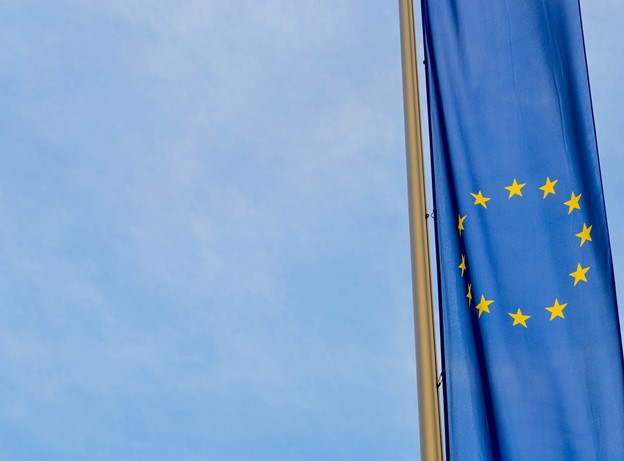Corporate Sustainability Due Diligence Directive : A Paradigm Shift in Corporate Responsibility.

The European Union has once again positioned itself at the forefront of global efforts to promote sustainability and corporate responsibility with the recent approval of the Corporate Sustainability Due Diligence Directive (CSDDD). This groundbreaking directive signifies a major shift in how companies are expected to operate, embedding environmental and human rights considerations deeply into their core business practices. It represents a bold step towards a more sustainable and equitable global economy, ensuring that corporations play a significant part in addressing the urgent challenges of climate change and human rights abuses.
Legal Framework and Liability

At the heart of the CSDDD is the establishment of legal liability for companies concerning environmental and human rights violations within their supply chains. This move is revolutionary, as it extends the responsibility of companies beyond their immediate operations to encompass the entirety of their supply chains, from raw materials extraction to final product delivery. For the first time, companies can be held legally accountable for non-compliance, marking a significant departure from voluntary sustainability reporting to mandatory due diligence.
Scope and Applicability
The directive's scope is broad and inclusive, targeting not only large EU-based companies but also non-EU companies that conduct substantial business within the EU. This wide applicability ensures that the directive covers a significant portion of the global economy, making it a powerful tool for change. By including non-EU companies, the EU is extending its influence beyond its borders, promoting a global standard for corporate sustainability practices.
Mandatory Due Diligence
A central feature of the CSDDD is the introduction of mandatory due diligence processes. Companies are required to actively identify, prevent, mitigate, and account for negative human rights and environmental impacts across their operations, subsidiaries, and value chains. This comprehensive approach necessitates a thorough examination of business practices, demanding transparency and accountability at all levels. The directive not only expects companies to address potential and actual adverse impacts but also to publicly report on their due diligence efforts and findings.
Directors Duties and Strategic Integration
Significantly, the directive mandates that directors of EU companies ensure the implementation of due diligence processes and integrate these considerations into their corporate strategy. This requirement underscores the role of leadership in fostering corporate sustainability, making it clear that considerations of human rights, climate change, and environmental consequences must be integral to decision-making processes. By holding directors accountable, the directive aims to embed sustainability into the fabric of corporate governance.

Civil Liability and Legal Recourse
A critical aspect of the CSDDD is the provision for civil liability. This means that companies can face legal action for failing to adequately address environmental and human rights violations within their supply chains. Such a provision empowers affected communities and stakeholders, providing them with a mechanism to seek redress. It also serves as a potent deterrent against negligence and encourages companies to proactively manage their environmental and social impacts.
Alignment with Global Warming Goals
Aligning corporate strategies with the global imperative to limit warming to 1.5 °C, as outlined in the Paris Agreement, is another pivotal element of the directive. Certain large companies are now required to ensure their business models are compatible with these climate goals, emphasizing the role of the private sector in combating climate change. This alignment underscores the urgency of the climate crisis and the critical role businesses must play in mitigating its effects.
Implementation and Impact:

Once formally adopted by the European Parliament and the Council, Member States will be given a two-year window to incorporate the Corporate Sustainability Due Diligence Directive into their national legislation. This directive is poised to foster a significant shift towards more sustainable corporate practices, bolstering transparency and accountability. It aligns with the objectives of the UN Sustainable Development Goals and the EU's Green Deal, aiming to catalyze environmental and social improvements.
To successfully implement this directive, it is imperative for companies to actively collaborate with their value chain partners, stakeholders, and specialists. This collaboration is crucial to accurately pinpoint and mitigate adverse impacts. The directive's execution promises not only to benefit the environment and society but also to enhance the resilience and competitive edge of European businesses. This comes at a time when the global market is increasingly prioritizing sustainability.
Challenges and Opportunities:
1. Support for Compliance: The directive imposes extensive due diligence requirements, posing a significant compliance burden, especially on SMEs. It is imperative for both the EU and its Member States to offer substantial support and guidance, enabling companies to effectively meet these new obligations.
2. Uniform Application: Achieving a uniform application of the directive across the EU is essential to prevent market fragmentation and to ensure that businesses have legal certainty. Ensuring a level playing field is crucial for the internal market's smooth functioning.
3. Influence Beyond EU Borders: The directive's applicability to non-EU companies with significant operations within the EU underscores its potential to influence global value chains positively. By extending its reach beyond its borders, the EU can promote sustainable practices on a global scale.
4. Fostering Collaboration and Innovation: The directive also offers a unique opportunity for companies to engage in collaboration with their industry peers, stakeholders, and experts. This collaborative approach is aimed at developing innovative solutions to mitigate adverse impacts and enhance sustainable practices across the board.
Towards a Sustainable Future
The Corporate Sustainability Due Diligence Directive marks a monumental leap towards integrating sustainability into the heart of corporate operations. By holding companies accountable for their environmental and human rights impacts, the EU is pioneering a path towards a more responsible and sustainable global economy. This directive not only addresses the pressing issues of today but also sets a precedent for future regulations, encouraging a worldwide shift towards sustainable development. As we embrace this change, it's clear that the CSDDD is more than just a directive; it's a call to action for businesses, governments, and individuals alike to work together in crafting a sustainable future. It challenges the status quo, urging companies to rethink their role in society and the environment. For a better tomorrow, the time to act is now, and the CSDDD is a significant step in the right direction.
